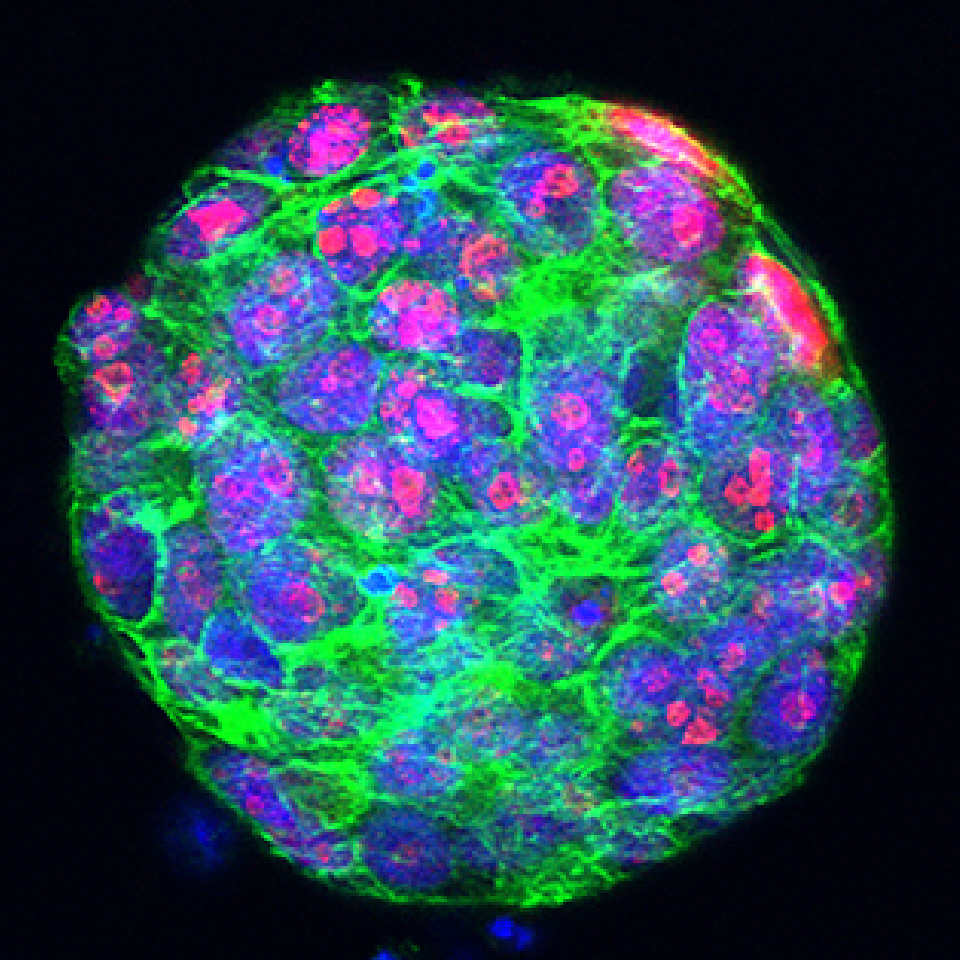Human organoid facility & biobank
Human organoid facility & biobank
The CRUK Convergence Science Centre offers a cutting-edge organoid culture and biobank facility, located at the ICR (Chelsea).
Organoids are in-vitro 3D cellular models derived from stem cells of primary tissue that faithfully preserve important characteristics of the original cancer, such as cellular functional heterogeneity and patient-specific responses to treatments. Such fidelity is essential for advancing personalised cancer medicine.
The Centre recognises the immense potential of organoid research in shedding light on various aspects of cancer, including tumor cell plasticity, mechanisms of therapeutic resistance, and the behaviors of circulating tumor cells. By utilising organoid models, researchers can establish a vital connection between clinical research and basic research. This iterative forward and reverse-translational pipeline enables the seamless translation of findings from the laboratory to the clinic and vice versa.
Firstly, this facility aims to implement innovative methodologies for deriving patient-derived cancer organoids, developing co-culture systems, performing transplantations, and conducting comprehensive analyses.
Secondly, the facility is dedicated to providing training for Engineering and Physical Science (EPS) and cancer researchers to effectively utilise these model systems, as well as any methodologies that our Centre develops. We aim to offer on-site training in the utilisation and propagation of organoid cultures to engineering and physical sciences laboratories that are working with such systems for the first time.

Our main focus is on advancing technologies and methodologies to broaden the scope of questions that can be explored using cancer organoid models. We have three primary scientific objectives:
Enhancing organoid derivation and growth: Our aim is to improve the processes involved in obtaining and cultivating cancer organoids. Additionally, we wish to create new cancer organoid models and share clinically annotated organoids with the ICR and Imperial research communities.
Establishing innovative co-culture methods: We seek to develop novel approaches for creating co-culture systems that can replicate the complex tumour microenvironment. This involves incorporating fibroblasts and/or immune cells in the organoid model. We also use microfluidics technology to simulate important tumour environmental factors, such as fluid flow, tissue mechanics, and hypoxia.
Developing tools and technologies to enhance scalability and throughput: Our goal is to create tools and technologies that allow for large-scale drug screening and high-content imaging of organoids, enabling more efficient and comprehensive 3D imaging.

For enquiries, please contact Sudeep Bhushal (sudeep.bhushal@icr.ac.uk) or Axel Behrens (a.behrens@imperial.ac.uk).